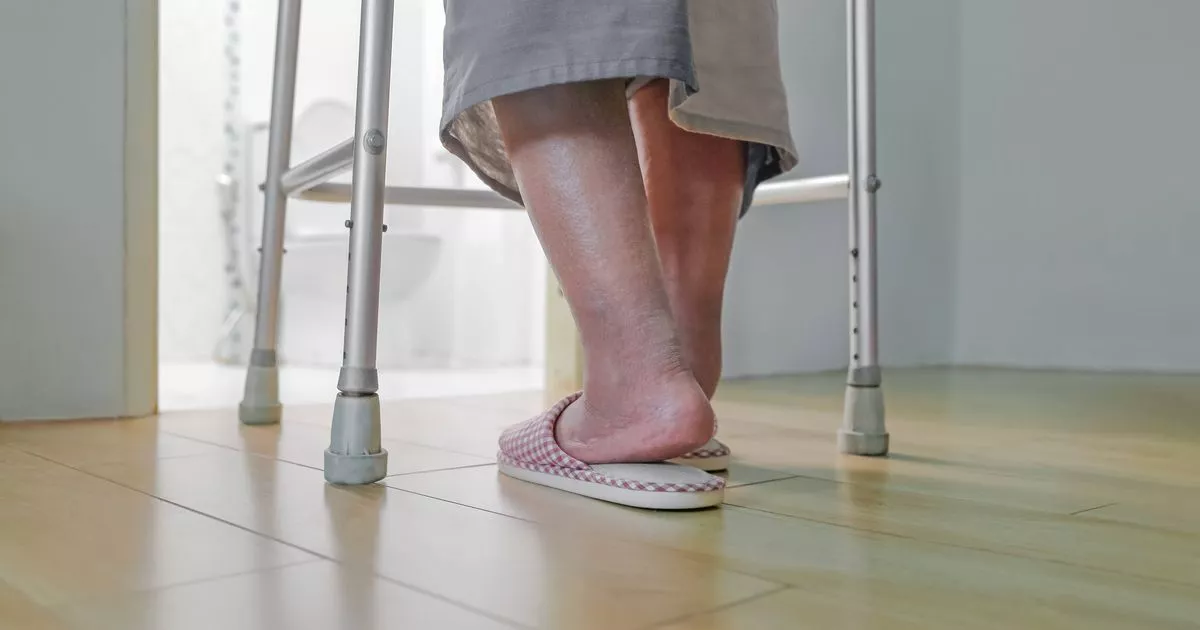A general practitioner has highlighted several early signs of dementia that may manifest before memory issues become apparent. Dementia, a degenerative brain condition, leads to diminished cognitive abilities, affecting memory, rational skills, speech, and emotional response over time. In the UK, more than 944,000 individuals are afflicted with dementia, with one in 11 people over the age of 65 affected. This number is rising due to increased longevity among the population.
Although a cure for dementia remains elusive, prompt diagnosis is crucial for establishing a treatment regime and medications to manage symptoms more effectively. Dr. Johannes Uys of Broadgate General Practice has pinpointed several precursory indicators that might suggest the advent of dementia. While dementia is commonly associated with failing memory, Dr. Uys indicates that physical symptoms may precede memory deterioration in certain cases. He identifies four initial signs to be vigilant about, often connected to specific dementia types like Parkinson’s disease dementia.
Identifying Early Signs of Dementia
Dr. Uys emphasizes that the manifestation of symptoms is individual, considering each person’s unique experience with dementia. “If you notice any of these early signs in yourself or a loved one, it’s important to consult a healthcare professional for a thorough evaluation. Early detection and intervention can help manage symptoms and provide the necessary support,” he concluded, as reported by Surrey Live.
The GP went on to share these four early signs to look out for:
- An unsteady gait
- Clumsiness
- Difficulty with coordination
- Tremors or stiffness in the limbs
The Importance of Early Diagnosis
Early diagnosis of dementia allows for prompt support to patients. However, a recent Alzheimer’s Society survey reveals that only one in three people consult a doctor within the first month of noticing dementia symptoms in themselves or a loved one. A poll involving 1,100 individuals showed that most people hesitate to seek help due to uncertainty about whether the symptoms are related to the condition or just signs of ageing. It’s crucial to remember that dementia is not a natural part of ageing, and if you’re becoming increasingly forgetful, especially if you’re over 65, it’s advisable to consult your GP.
Experts predict that by 2050, a staggering 150 million people worldwide will be affected by the condition, according to research published in the Lancet Public Health. Currently, around 900,000 people in the UK are living with it.
Risk Factors and Preventative Measures
Dementia risk factors are a mixed bag, with some being unavoidable, like age, while others can be managed through lifestyle modifications in our younger years. Regular exercise and a balanced diet are known to lower the risk. Other beneficial changes include maintaining a healthy weight, quitting smoking, reducing alcohol consumption, and managing cholesterol levels. The NHS suggests that cutting down on saturated fats, salt, and sugar, and increasing fibre intake could also help.
Meanwhile, awareness and education about dementia are crucial in changing societal perceptions and encouraging early consultation. The announcement comes as healthcare professionals continue to advocate for better understanding and management of this condition, emphasizing the importance of recognizing early signs and seeking timely medical advice.
Looking Ahead
The move represents a growing recognition of the need for early intervention in dementia care. As the population ages, the healthcare system must adapt to meet the increasing demand for dementia-related services. Future strategies will likely focus on enhancing public awareness, improving diagnostic tools, and expanding support networks for patients and their families.
In conclusion, while dementia remains a challenging condition, understanding its early signs and risk factors can lead to better management and improved quality of life for those affected. As research continues to evolve, the hope is that new treatments and interventions will emerge, offering renewed hope for patients and their families.
